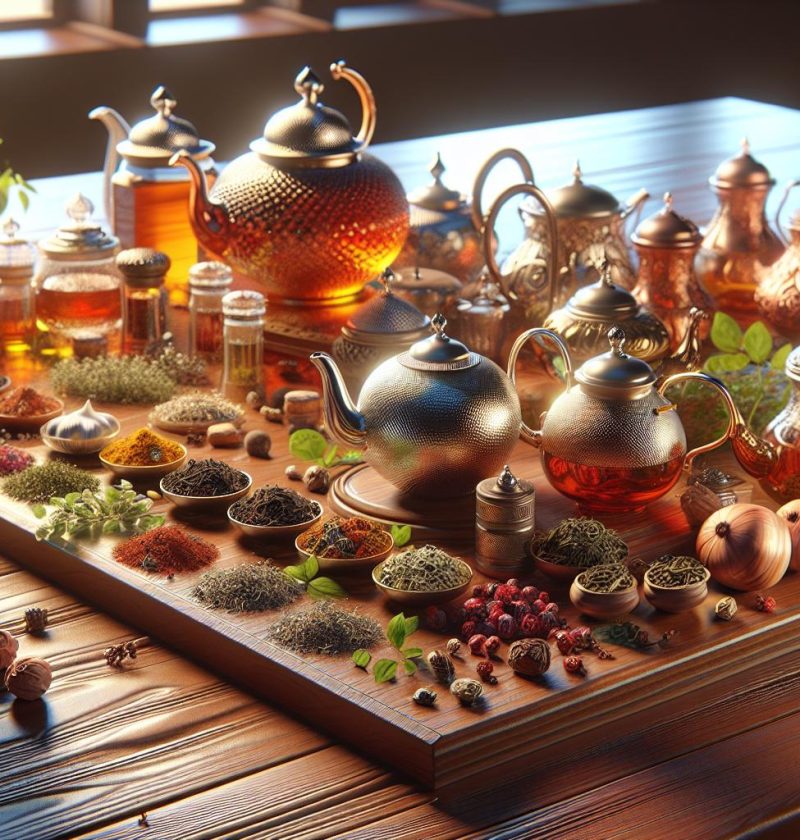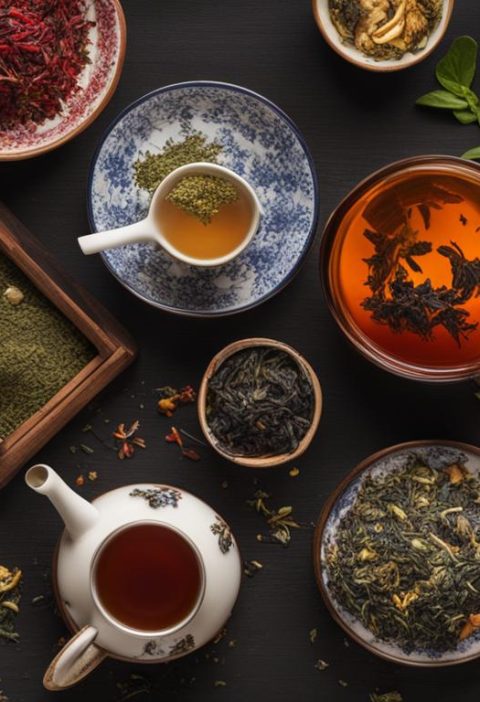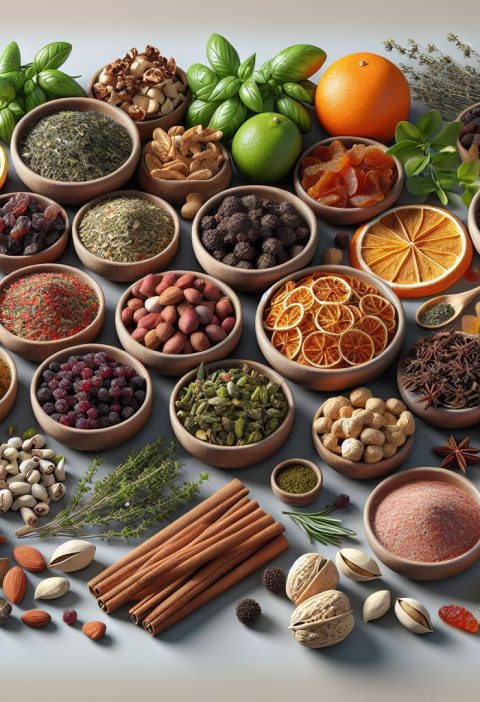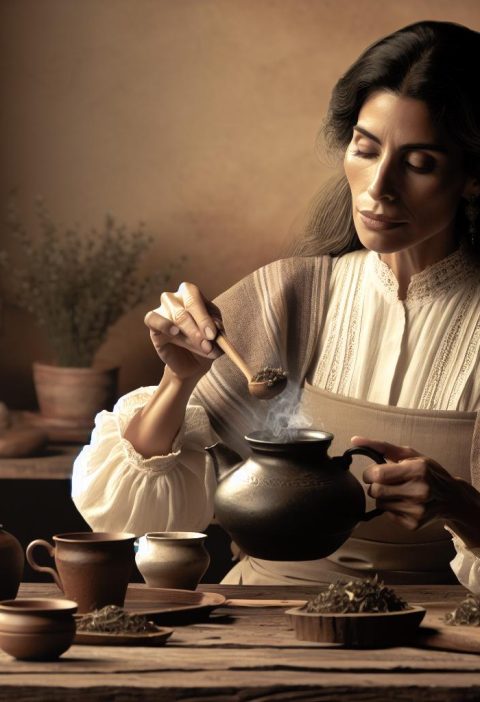When it comes to winter, there’s nothing quite like cozying up with a steaming cup of tea that warms us from the inside out. Crafting our own warming winter tea blends can be a delightful way to embrace the season and all its comforting flavors. From spicy chai to soothing herbal infusions, the possibilities are endless when it comes to creating teas that cater to our unique tastes and preferences.
Join us on a journey through the art of crafting warming winter tea blends, where we’ll explore the aromatic spices, fragrant herbs, and rich flavors that come together to create the perfect cup of comfort. Whether you’re a seasoned tea enthusiast or just starting to explore the world of loose-leaf blends, we’ll provide you with tips, tricks, and recipes to elevate your tea-drinking experience this winter season. Let’s brew up something special together and savor the warmth and coziness that only a homemade winter tea blend can offer.
Exploring Winter Tea Ingredients
Winter is the perfect time to experiment with a variety of ingredients to create unique and comforting tea blends. Whether you’re a beginner or an expert tea crafter, there are endless possibilities to explore. Let’s dive into the world of winter tea ingredients based on your experience level:
For Beginners: Mastering the Basics
- Start with the Classics: Begin with familiar ingredients like black tea, cinnamon, and cloves to create a simple yet cozy winter blend.
- Get Creative with Citrus: Enhance your teas with a pop of freshness by adding orange or lemon peels for a zesty twist.
- Try Herbal Infusions: Experiment with peppermint or chamomile for a soothing and calming effect.
For Intermediate Cooks: Enhancing Your Dish
- Incorporate Spices: Elevate your blends with ginger, cardamom, and star anise for a spicier flavor profile.
- Explore Floral Notes: Add a touch of elegance to your teas with lavender or rose petals for a fragrant experience.
- Play with Sweetness: Balance the flavors with honey or vanilla to create a harmonious and well-rounded taste.
- Blend Different Tea Varieties: Mix green tea with black tea for a complex and layered flavor profile.
- Infuse Exotic Ingredients: Experiment with hibiscus flowers, lemongrass, or bergamot for a unique and captivating tea experience.
- Age Your Blends: Consider aging your tea blends to deepen flavors and create a richer drinking experience.
Embrace the winter season by exploring a wide array of ingredients and creating custom tea blends tailored to your preferences. Let your creativity guide you as you craft delicious and soul-warming teas to savor during the cold months ahead.
Aromatic Spices for Added Warmth
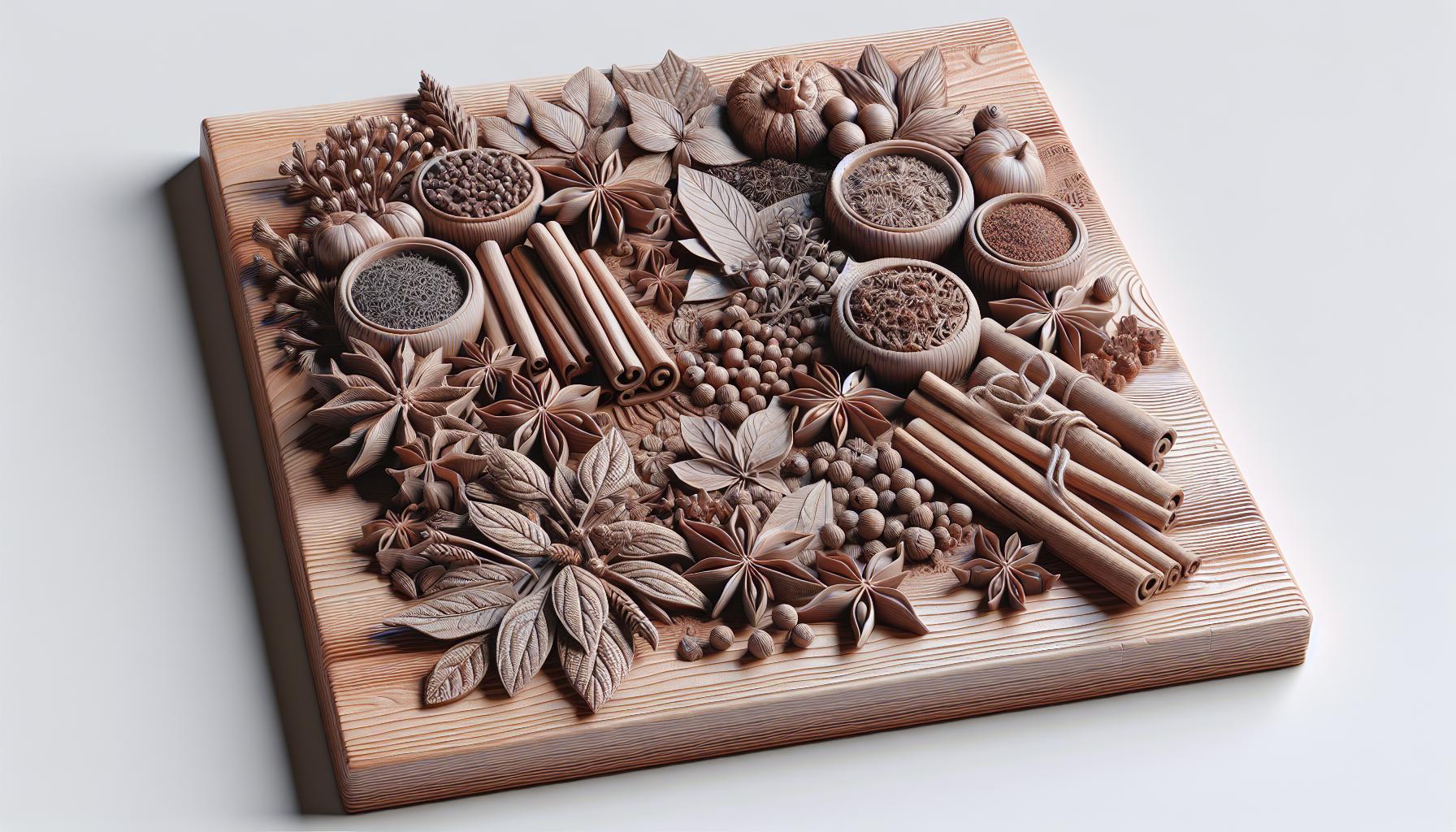
Spicing up your winter tea blends with aromatic spices can bring a comforting and warming touch to your cup. Here are some ways to incorporate these fragrant additions based on your expertise level:
For Beginners: Mastering the Basics:
- Start with cinnamon and ginger to add a cozy flavor to your teas.
- Experiment with cardamom for a hint of warmth and depth.
- Consider nutmeg for a touch of sweetness and spice.
For Intermediate Tea Crafters: Enhancing Your Blends
- Combine cloves and star anise for a more complex and aromatic profile.
- Try adding vanilla beans or vanilla extract for a rich and smooth taste.
- Incorporate black peppercorns for a subtle heat that complements other spices.
- Explore the unique flavors of saffron and allspice to add an exotic twist.
- Infuse your blends with fennel seeds or coriander for a surprising flavor experience.
- Experiment with smoked spices like smoked paprika for a bold and distinctive flavor profile.
Remember, balancing these aromatic spices is key to creating a harmonious winter tea blend that warms both the body and the soul. Enjoy the art of crafting tea blends tailored to your preferences and let the magic of spices elevate your winter tea experience.
Fragrant Herbs for Relaxation
When it comes to crafting warming winter tea blends for relaxation, fragrant herbs play a crucial role in enhancing the soothing experience. Whether you’re just starting or already an experienced tea crafter, incorporating the right herbs can take your tea blends to the next level. Here’s a breakdown for all levels of expertise:
For Beginners: Exploring Gentle Aromas
- Lavender: Known for its calming properties, lavender adds a subtle floral note to teas, promoting relaxation.
- Chamomile: With its mild and slightly sweet flavor, chamomile is perfect for inducing a sense of tranquility.
- Peppermint: Refreshing and uplifting, peppermint not only adds a delightful aroma but also aids in digestion.
For Intermediate Tea Crafters: Elevating Complexity
- Lemon Balm: Combining citrusy and herbal notes, lemon balm brings a refreshing twist to winter tea blends.
- Holy Basil (Tulsi): Revered for its adaptogenic properties, holy basil imparts a delicate spiciness that complements other herbs well.
- Passionflower: Known for its calming effects, passionflower adds a unique earthy flavor to teas, ideal for unwinding after a long day.
- Valerian Root: A powerful herb for relaxation, valerian root has a strong earthy taste that blends well with bolder flavors.
- Ashwagandha: Enhancing stress relief, ashwagandha’s nutty undertones add depth to tea blends, promoting overall well-being.
- Kava Kava: With its potent calming properties, kava kava brings a robust flavor profile that is best balanced with other herbs.
By incorporating these fragrant herbs into your winter tea blends, you can create a tranquil oasis in a cup, allowing for moments of peace and relaxation during the colder months.
Creating Your Custom Tea Blend
For Beginners: Getting Started
- Choose a base tea like black, green, or herbal.
- Pick a primary herb such as chamomile or lavender.
- Add a complementary herb such as peppermint or cinnamon.
- Start with small quantities for experimentation.
- Blend in a 2:1:1 ratio (base tea:primary herb:complementary herb).
For Intermediate Tea Crafters: Elevating the Complexity
- Explore herbs like lemon balm and holy basil.
- Incorporate floral elements with rose petals or hibiscus.
- Enhance flavor with spices like cardamom or ginger.
- Consider aromatic additions like orange peel or lemongrass.
- Experiment with different ratios for a nuanced taste.
- Include potent herbs such as valerian root or ashwagandha.
- Enhance relaxation with kava kava or passionflower.
- Add depth with earthy tones like licorice root or turmeric.
- Incorporate citrus zests for a refreshing twist.
- Personalize blends based on preferred flavors and effects.
| Level | Components |
|---|---|
| Beginners | Base tea, primary herb, complementary herb |
| Intermediate | Lemon balm, holy basil, floral elements, spices |
| Experts | Potent herbs, relaxation-enhancing herbs, earthy tones, citrus zests |
Tips and Tricks for Brewing the Perfect Cup
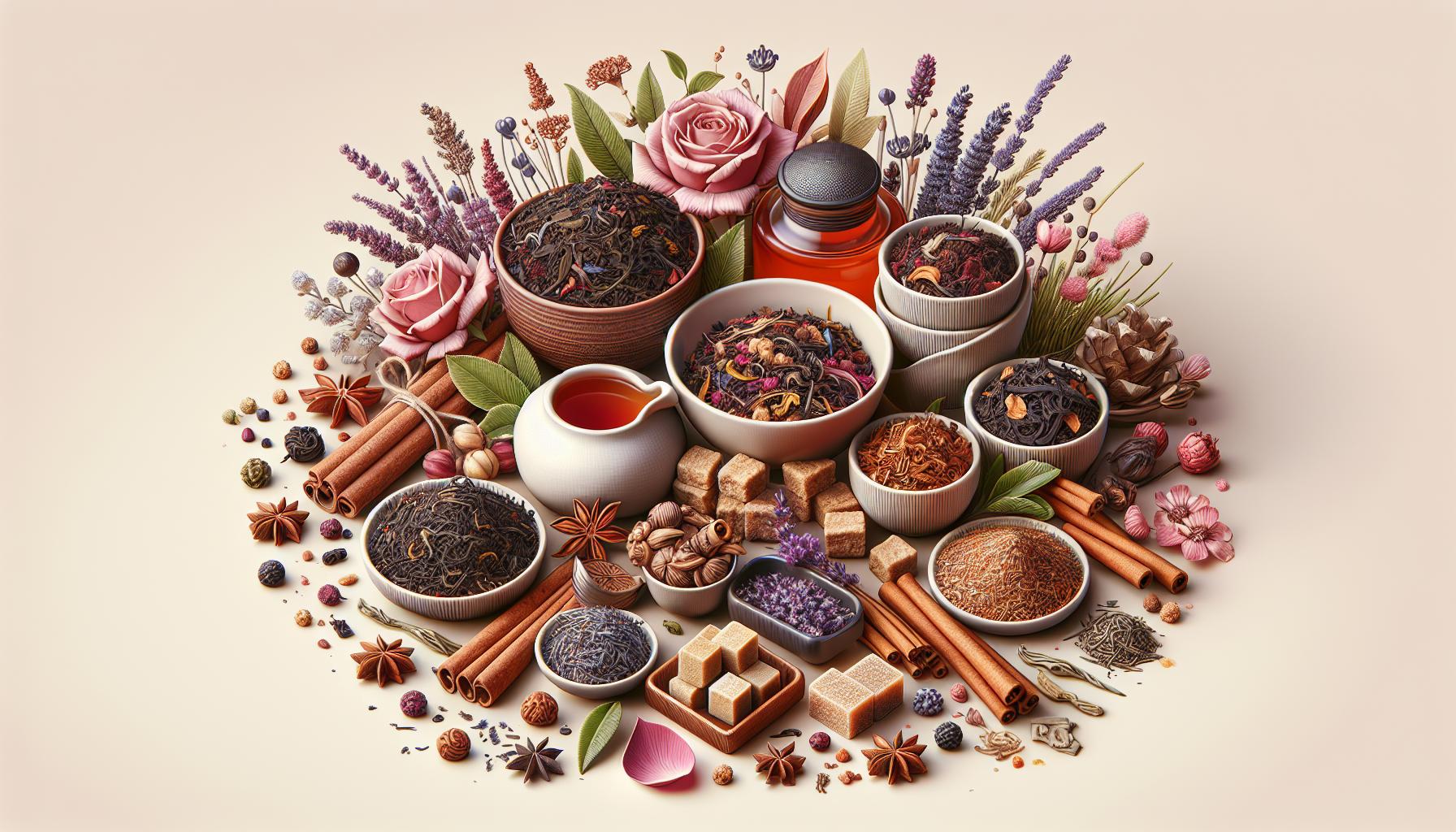
For Beginners: Mastering the Basics
- Start with loose leaf teas as they provide better flavor than tea bags.
- Use fresh, filtered water as it can greatly impact the taste of your tea.
- Follow the recommended temperature and steeping time for the type of tea you’re brewing.
- Invest in a good quality tea kettle to ensure proper brewing.
- Experiment with different types of tea to find your preferences.
- Avoid over-steeping your tea to prevent bitterness.
For Intermediate Tea Enthusiasts: Enhancing Your Brew
- Explore floral additions like rose petals or hibiscus for a fragrant touch.
- Play with adding spices such as cinnamon or ginger for a cozy winter blend.
- Consider mixing different tea varieties to create unique flavor profiles.
- Experiment with honey or maple syrup as natural sweeteners for a comforting brew.
- Try brewing your tea in a glass teapot to appreciate the color and infusion process.
- Don’t forget to adjust the strength of your brew by varying the amount of tea leaves.
- Source high-quality tea leaves from specialty suppliers for a top-tier experience.
- Blend rare or exotic teas with unique herbs like ashwagandha or valerian for depth.
- Utilize tea infusers or strainers for precise brewing control.
- Create your own tea blends by experimenting with a variety of ingredients.
- Consider the temperature of water you use based on the tea type for optimal extraction.
- Personalize your brew with citrus zests, dried fruits, or edible flowers for a luxurious touch.
Key Point: Enjoy the process of brewing tea and don’t be afraid to get creative with your blends.
Conclusion
Crafting warming winter tea blends is an art that caters to all levels of expertise. From beginners mastering the basics to advanced crafters blending rare teas with exotic herbs, there’s a world of creativity to explore. Experimenting with floral additions, spices, and unique blends allows us to personalize our tea experience. Remember, the key is to enjoy the process and let your imagination run wild. So, grab your favorite tea leaves, mix in some herbs and spices, and create a cozy cup of warmth that’s uniquely yours. Cheers to endless possibilities in the world of tea crafting!
